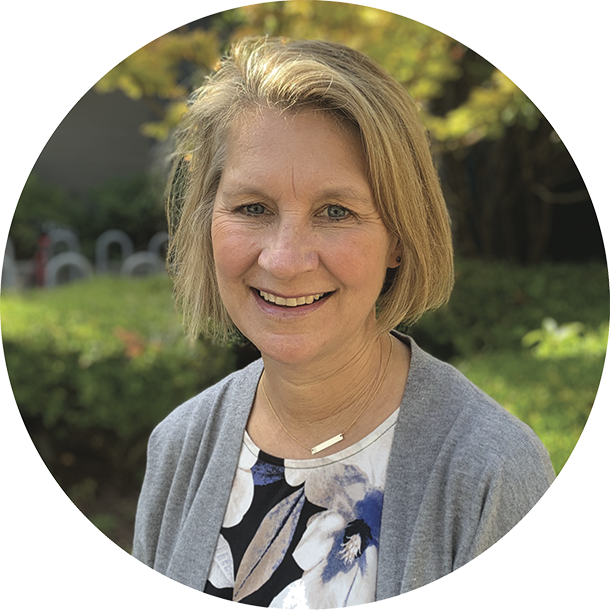For many prospective MBA students, applying for a program can call up a lot of emotion.
You’ll go through plenty of self-reflection when thinking through what you can contribute to an MBA program and how you can differentiate your application.
The exercise is therapeutic, but can also be challenging to navigate on your own.
Don’t fret if you’re at a loss. For inspiration, examine your contributions by delving into these areas of experience. We’ve included writing prompts to help you brainstorm further.
1. Reflect on your personal history
Berkeley Haas Evening & Weekend MBA program alum, Shivam Goyal, MBA 19, and senior product manager at Adobe says, “Self-reflection helped me think about what I am bringing to the program, why that makes me unique, and what past events shaped my work and education experiences.”
Shivam says that even in his childhood he can remember applying design thinking techniques to his day-to-day life. He saw issues like a digital divide between rural and urban populations and the lack of technology penetration in all strata of the society.
Shivam says this personal history, “Instilled a sense of humility and keenness to solve difficult social problems and made me think about the benefits of a design education." From this, he found inspiration to provide a unique perspective to the MBA program he was applying to.
Writing prompt: What lessons from your childhood have made you who you are and led you to an MBA program?
2. Assess your employment history
Sera Lee, MBA 19, and bank examiner at the Federal Reserve Bank in San Francisco did a lot of research before applying to the Berkeley Haas Evening & Weekend MBA program. She realized that her work experience was one of her most valuable assets.
"Looking at the statistics, I knew that fewer Evening & Weekend MBA students were on the banking side," says Sera. "When considering what I could contribute to the program, I thought about how I could provide the value of my work experience in classes like ethics, finance, or macroeconomics.”
By finding her differentiating factor, in this case her employment history, Sera positioned herself as the voice of the banking industry as a way to set herself apart from other applicants in her MBA program.
Writing prompt: What have you learned in your previous jobs that can help your colleagues in an MBA program?
3. Explore lessons from your past education
Don’t discredit the experience you obtained from an undergraduate program. Inside and outside of the classroom, you were exposed to different perspectives and gained unique skills.
Shivam determined that the combination of his undergraduate studies in design, and his work experience post-graduation were his differentiating factors.
“I knew I could talk about customer empathy and solving real-world cases for a particular user problem to get the right outcome when introducing a product into the market,” says Shivam.
As a result, when Shivam started writing his MBA essays, he leveraged those experiences to tell a unique story about himself, that dove into more than just the statistics of his accomplishments.
“I wanted to tell a story about me as a person," says Shivam.
Writing prompt: What lessons from previous education contribute to your unique story?
4. Show boldness
People are creatures of habit, which means that showing ability and receptiveness to change can be a unique selling point.
Sera says, "I sometimes tell my friends that they should get an MBA, and they tell me they don't see themselves as a 'business person' or a 'leader type.' I'm sure all of us have thought that at one time during the pre-application or application process.”
While fear is a common emotion for those pursuing a change in their life, overcoming the fear can make an interesting and unique story.
“If you're open to learning, being adventurous, and meeting new people, you're ready to contribute to an MBA class," says Sera.
Writing prompt: Can you recall a time where the voice inside your head tried to prevent you from taking a step forward? How did you overcome the doubt and fear?
5. Examine personal activities
What you can contribute to an MBA program isn’t only based on your professional and academic past. There are also character contributions that go a long way during the application process.
Sera says, “I also have a passion for community volunteering. In my admissions essay, I wrote about the possibility of creating a program or student club committed to volunteering as an example of how I could contribute to the program outside of class."
Writing prompt: How will you contribute to an MBA program, when you’re not on campus?
6. Play to your competitiveness
When considering academic potential, admissions offices also examine undergraduate and any graduate transcripts and overall academic progress in chosen areas of study.
It’s clear when applicants take an active role in making themselves as competitive as possible. For example, some Berkeley Haas MBA applicants show initiative by bolstering their quantitative abilities with math courses like the UC Berkeley Extension Math for Management course.
Writing prompt: What do you do to position yourself as a Student Always?
For more tips, take a look at our guide to crafting your best MBA application.
By welcoming a unique blend of perspectives and experiences into our MBA program, Berkeley Haas can break away from the status quo and allow our students to enjoy education in a place where different perspectives are valued.
If Berkeley Haas’ Defining Leadership Principles resonate with you, learn more about what it takes to join one of our MBA programs.









